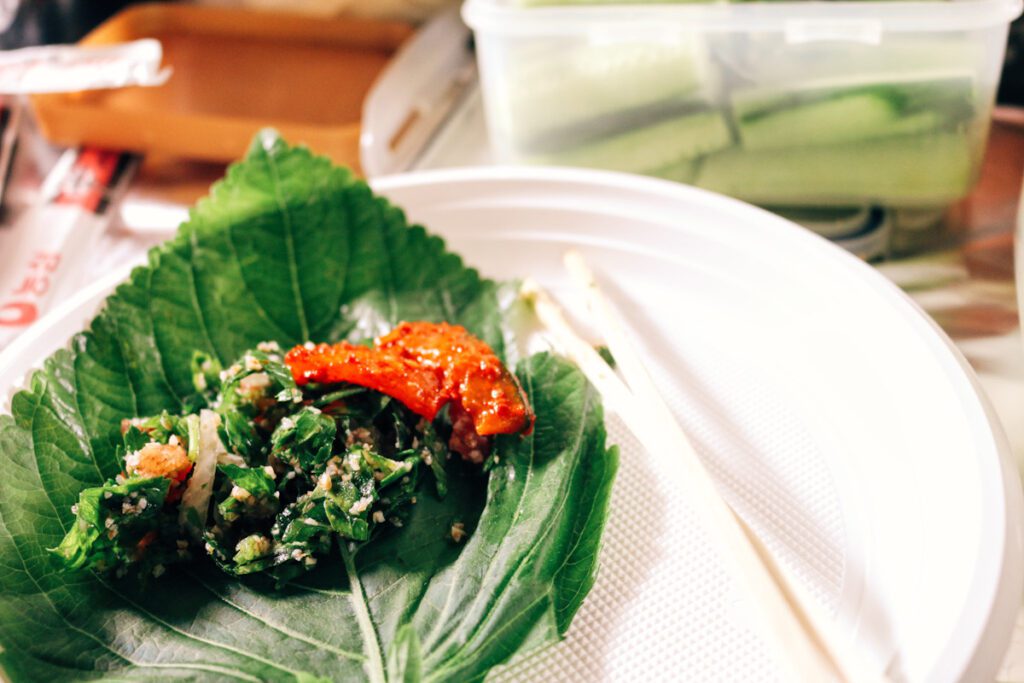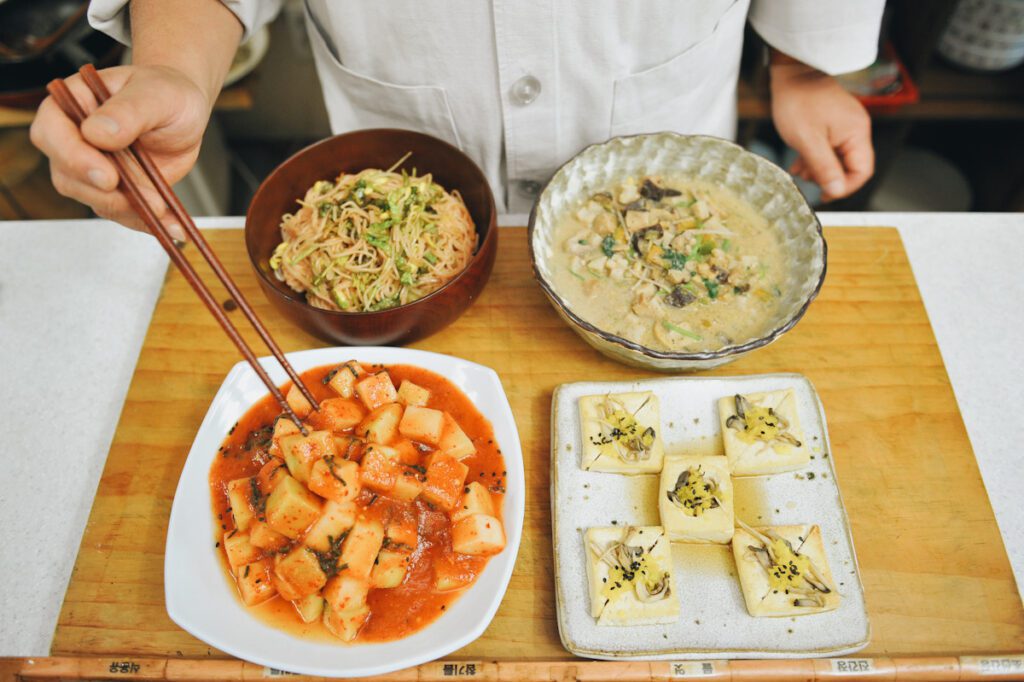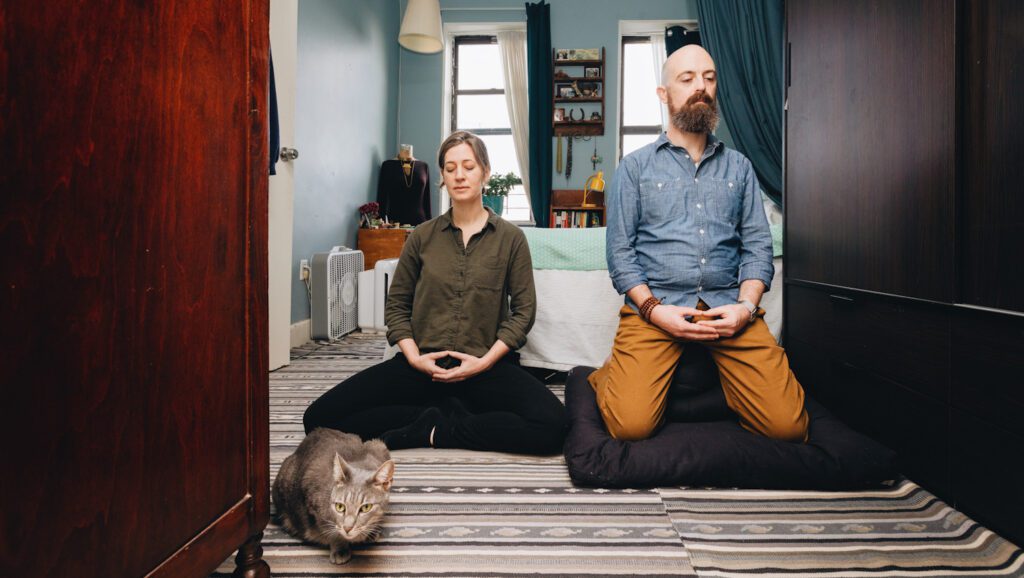Ask people what they know about Buddhists, especially people who have never met Buddhists, and you’ll likely get a few simple answers: They’re peaceful. They’re kind. They’re super-chill. They don’t drink. And they don’t eat meat.
Alas, there is no practice, religious or otherwise, guaranteed to make you any of these things. Meditation is great, but it’s not magic. As someone who has practiced Zen Buddhism for the past 12 years, I know this all too well.
That said, while many Buddhist practitioners around the world practice at least in some hope of becoming more peaceful, more kind, and more centered, that last, more concrete rule—no meat-eating—is far from universally observed by even serious students and teachers. (Same goes for drinking, but that’s for another time.)
Siddhartha Gautama (aka the Buddha), founded Buddhism more than 2,500 years ago in India. About 535 million people identify as practitioners worldwide today. Attitudes about vegetarianism vary widely among them, even though a major tenet of Buddhism is not to harm sentient beings—in fact, Buddhists vow to save sentient beings. So why aren’t all Buddhists, including me, vegetarians?

The answer, if you’re into answers, is murky. Some teachers and scholars say the Buddha himself espoused a vegetarian diet. Others say practitioners must avoid meat only when it’s killed expressly for them. In short, there are many ways to interpret Buddhism’s first precept to “refrain from taking life,” if you’re into strict interpretations.
But Buddhism is famously uninterested in pat answers or strict interpretations. Thus the question of why all Buddhists aren’t vegetarians cuts to the very heart of what it means to be a Buddhist. It introduces a clear rule with a binary value—vegetarian or not—into a practice that eschews unquestioned adherence to commandments and teaches followers to go beyond absolutes. While nonkilling is a key tenet of the practice, so is the middle path—steering clear of extremes. Buddhism tends to teach modern practitioners to consider the complications of modern life, the interdependence of beings, and the subtleties of individual situations when making moral choices, rather than unthinkingly applying maxims. That’s what many mainstream religions do, and why they so often lead to conflict and division. It’s the kind of thinking that has led to religious extremism—people who identify as Christians murdering abortion providers, or suicide bombers acting in the name of Islam.
That’s not to say that Buddhism is a free-for-all. “The ethical principles are contemplations, they’re meant to be daily challenges,” says Ethan Nichtern, a Buddhist teacher and author of several books, including The Road Home: A Contemporary Exploration of the Buddhist Path. “The world is complex, and as soon as you introduce complexity, the choices that we make are not black and white. At the same time, it’s about living in that challenge. It’s not like these teachings don’t say anything.”
Indeed, Buddhist teachings contain some of the clearest language, among all major world religions, on the subject of animal life. That first precept, also often translated as “nonkilling” or “nonharming,” applies to “all sentient beings”—not just humans, but any life form that can feel pain. The Lankavatara Sutra outright condemns meat-eating, saying that “if we slaughter [sentient beings] and eat them it is the same [as] slaughtering and eating our own parents” because “all males are our fathers, and all females are our mothers.”

San Diego-based Buddhist practitioner and longtime vegan Bob Isaacson, a former human rights lawyer, started the advocacy group Dharma Voices for Animals ten years ago when he noticed that many Buddhist centers where he attended events or retreats didn’t serve vegetarian meals, much less vegan ones. He has heard every Buddhist rationalization for meat-eating and has written in detail about Buddhist doctrine that addresses the topic.
“Slaughterhouses are out of sight, out of mind,” he says. “So what you hear from people is, ‘I’m not killing the animal.’ But you’re biting into its flesh and you’re chewing it and you’re swallowing it. You’re intimately involved in the death and suffering of the animal.” He also points to the Buddhist concept of “right livelihood,” which advises Buddhists to make their living in a way that does the most good and least harm. One of the few livelihoods the Buddha called out specifically as not right was slaughtering animals. “If you’re eating an animal, somebody’s got to kill it,” Isaacson says. “Why force someone to kill an animal for you?”
Not all vegetarian Buddhists are vegan, though some argue if you’re cutting meat to save sentient beings, it only makes sense to also cut milk and eggs. Alan Dale, founder of the online community Vegan Buddhism, likens eating dairy to stealing—another act Buddhist precepts specifically warn against. “Are we stealing the lives of these animals?” he says. “We’re stealing their eggs. We’re stealing their milk, which should go to the calves.”
Though it’s hard for any Buddhist to argue against vegetarianism, meat-eating remains prevalent among practitioners for a few reasons. In Tibet, where a major strand of Buddhism originated in the 7th Century, meat-eating is so intrinsic to the culture that even most llamas, or leaders, are carnivores, and do not teach vegetarianism as a requirement. Another reason Buddhist teachers might not emphasize vegetarianism is that, while nonkilling and care of sentient beings are bedrock beliefs of the religion, so is the Buddha’s rejection of asceticism. He conceived his way as a moderate alternative to other spiritual practices during his time that required great physical extremes of their followers. Jains, for instance, are vegetarian and do not eat even root vegetables because they believe that pulling them out of the ground harms the plant and surrounding microorganisms. The Dalai Lama himself began eating meat on the advice of his doctors after a hepatitis B infection—but he still encourages Buddhists around the world to eat vegetarian if possible: “We must respect all forms of life.”
We make different choices, have different priorities throughout our lives, and try to remain conscious of the interdependence throughout—how our choices affect our own bodies and our own families as well as the world around us.
Many meat-eating Buddhists point to an edict from the Theravadan school of Buddhism that says practitioners can eat animals that weren’t killed expressly for them. But this rule, Isaacson points out, was made for a time and place when monks went begging door-to-door for their sustenance. “If a family was eating,” he explains, “you could take some morsels off the plate.” That is, if you were a monk.
The fact is, most of this is quibbling, as if we’re all lawyers in karma court. Sometimes it’s as simple as this: Buddhists break precepts—taking what isn’t theirs, imbibing intoxicants, indulging in wrong speech—but continue the practice of trying to be better. The same can be true of choosing to eat meat. I’ve been a vegetarian, a pescatarian, and a no-red-meat eater at various times throughout my Buddhist practice. I could come up with rationalizations for them all, tell you about doctors and health reasons and loopholes in Buddhist doctrine. But there’s no getting around the fact that eating fewer animals and animal products means less suffering.
We make different choices, have different priorities throughout our lives, and try to remain conscious of the interdependence throughout—how our choices affect our own bodies and our own families as well as the world around us. Even semi-vegetarianism—from Meatless Mondays to simply choosing the Impossible Burger more often—reduces suffering. You don’t have to choose sides to do a little better, and consciousness tends to nudge us toward the better.
I’m not a vegan, and I’m not 100-percent vegetarian at the moment, but when I do reach for the Impossible Burgers, it’s at least in part because of my practice. Introducing a binary—vegetarian or not—could even discourage those who don’t identify as purely vegetarian from considering plant-based options in their daily diets.

I also sometimes drink wine, tell fibs, and am less kind than I should be. I can’t defend these choices from a Buddhist or human perspective, but my practice encourages me to keep trying for better, for balance.
Anne Carolyn Klein, a professor of religious studies at Rice University and the founding director and resident lama at Dawn Mountain Tibetan Temple in Houston, told me once about a retreat in India. She and the others who attended were careful to walk in a single-file line outdoors so they killed as few bugs as possible. “We didn’t cancel the retreat because bugs would be killed,” she said of the compromises inherent in almost any act on Earth. “One does one’s best, and it’s really important to do your best and not say, ‘Oh, well, you had to kill some bugs, so it must be okay.’ That’s not okay. We do things that are not okay, and we recognize that they are not okay.”
From a Buddhist perspective, there’s no great argument in favor of meat-eating. Why aren’t all Buddhists vegetarian or vegan? Because Buddhists are not perfect. Practice simply encourages us to keep trying to do better.
The views expressed in opinion pieces are those of the author(s) and do not represent the policy or position of LIVEKINDLY.


